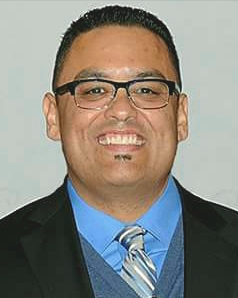By Juan Baez, BA, LAC, KCGC, IGDC, on behalf of the National Hispanic and Latino ATTC
Haga clic aquí para la versión en español
Clique aqui para a versão em português
 During this time of available betting expansion, it’s important to discuss problem gambling and how it can destroy the lives of individuals and families.
During this time of available betting expansion, it’s important to discuss problem gambling and how it can destroy the lives of individuals and families.
In recognition of Problem Gambling Awareness Month, it’s important to note the factors that make problem gambling unique compared to substance use disorders or other problematic behaviors. These are imperative to know when working with and educating people with gambling problems and or disorder. As a Latino community, it’s essential to talk about what those differences are and how we can better serve our people.
According to the United States Census, there are approximately 62 million Latinos. This makes us a significant part of this country’s fabric, and essential to its success. Latinos come from or have roots in places such as Mexico, Central America, the Caribbean, and elsewhere. Even in various countries and regions, the culture, language, and availability of gambling are diverse. It’s important to identify those distinctions. It can be a matter of simply asking questions and practicing cultural humility to educate ourselves and others.
There is a lot of discussion around the terminology of how to address us. Different terms like Latinos, Hispanics, Latinx, and others exist. It is essential to allow us to self-identify and meet us where we are at. This includes how Latinos with a gambling problem identify themselves.
There are many types of gambling activities in the United States. These include slot machines, table and card games, lotteries, sports betting, bingo, and animal racing. However, there are other non-traditional forms of gambling in Latino countries. It’s important to know the differences that exist and what types of gambling Latinos engage in.
Certain populations are at more risk of developing a gambling problem. These include Latinos, people with other types of addictions or mental health concerns, and young adults (Petry, 2005). The prevention of people developing problem gambling in the first place is fundamental. To educate on the risk and protective factors for developing a gambling problem is essential.
Treatment of individuals with gambling problems must be available and training for addressing the issue is needed. Mental health and substance use treatment centers should invest in having counselors and therapists who are certified in providing effective problem gambling therapies. These practices should then be applied in culturally informed ways. Recovery for Latinos is possible with treatment and aftercare.
One of the things that sets gambling apart from substance use disorders is stigma and shame. Even though these exist with other addictions, they can be more pronounced with gambling (Hing, 2016). Some see it as a moral weakness instead of a disease that requires help. It’s important to address stigma and shame and communicate that Latinos with a gambling problem need compassion and treatment.
According to the National Council on Problem Gambling, there are approximately 2 million adults in the United States who suffer from a serious addiction or disorder to gambling each year. Another 4-6 million have a less severe form of problem gambling. Services for people who suffer from problem gambling are more limited than to alcohol or other drugs (Marotta, 2017). This plays a role in having culturally appropriate services available for Latinos. But they exist and are growing in availability.
To reduce the overall incidence of gambling problems, a multifaceted approach is the best course. This includes research, prevention, treatment, and aftercare. Advocacy for public and private investment in this issue will lead to more effective and culturally informed evidence-based strategies.
Problem Gambling Resources
National Council on Problem Gambling: https://www.ncpgambling.org/
UCLA Gambling Studies Program: http://www.uclagamblingprogram.org/
International Center for Responsible Gaming: https://www.icrg.org/
Gamblers Anonymous: https://www.gamblersanonymous.org/ga/
Gam-Anon: https://www.gam-anon.org/
National Problem Gambling Helpline: 1-800-522-4700
 Juan Baez is a bicultural and bilingual (Spanish) problem gambling prevention professional in Kansas. A licensed addictions counselor, Kansas Certified Gambling Counselor, and holder of an International Gaming Disorder Certificate, Juan received a bachelor’s degree in sociology from Fort Hays State University. He is the Program Committee Chairperson for the Midwest Consortium on Problem Gambling and Substance Abuse and holds leadership positions on committees with the National Council on Problem Gambling.
Juan Baez is a bicultural and bilingual (Spanish) problem gambling prevention professional in Kansas. A licensed addictions counselor, Kansas Certified Gambling Counselor, and holder of an International Gaming Disorder Certificate, Juan received a bachelor’s degree in sociology from Fort Hays State University. He is the Program Committee Chairperson for the Midwest Consortium on Problem Gambling and Substance Abuse and holds leadership positions on committees with the National Council on Problem Gambling.
References
Hing, N., Russell, A. M., Gainsbury, S. M., & Nuske, E. (2016). The Public Stigma of Problem
Gambling: Its Nature and Relative Intensity Compared to Other Health Conditions. Journal of gambling studies, 32(3), 847–864.
Marotta, J., Hynes, J., Rugle, L., Whyte, K., Scanlan, K., Sheldrup, J., & Dukart, J. (2017).
2016 Survey of Problem Gambling Services in the United States. Boston MA: Association of Problem Gambling Service Administrators.
Petry, N. M. (2005). Pathological gambling: Etiology, comorbidity, and treatment.
Washington, DC: American Psychological Association.
U.S. Census, retrieved from: https://www.census.gov/library/stories/2021/08/improved-race-ethnicity-measures-reveal-united-states-population-much-more-multiracial.html